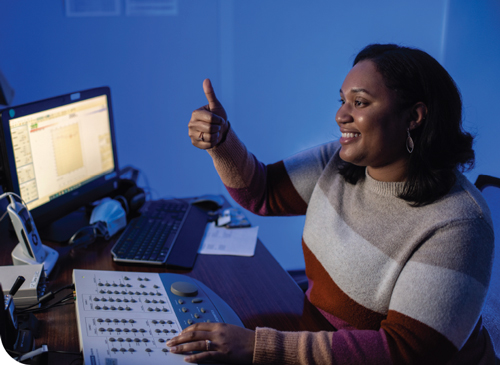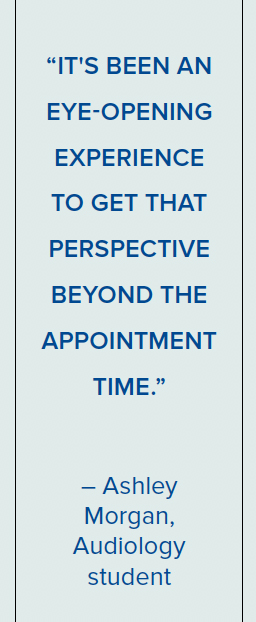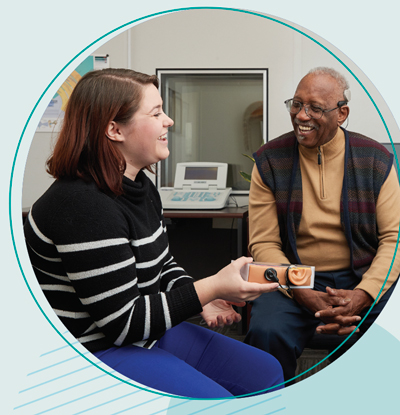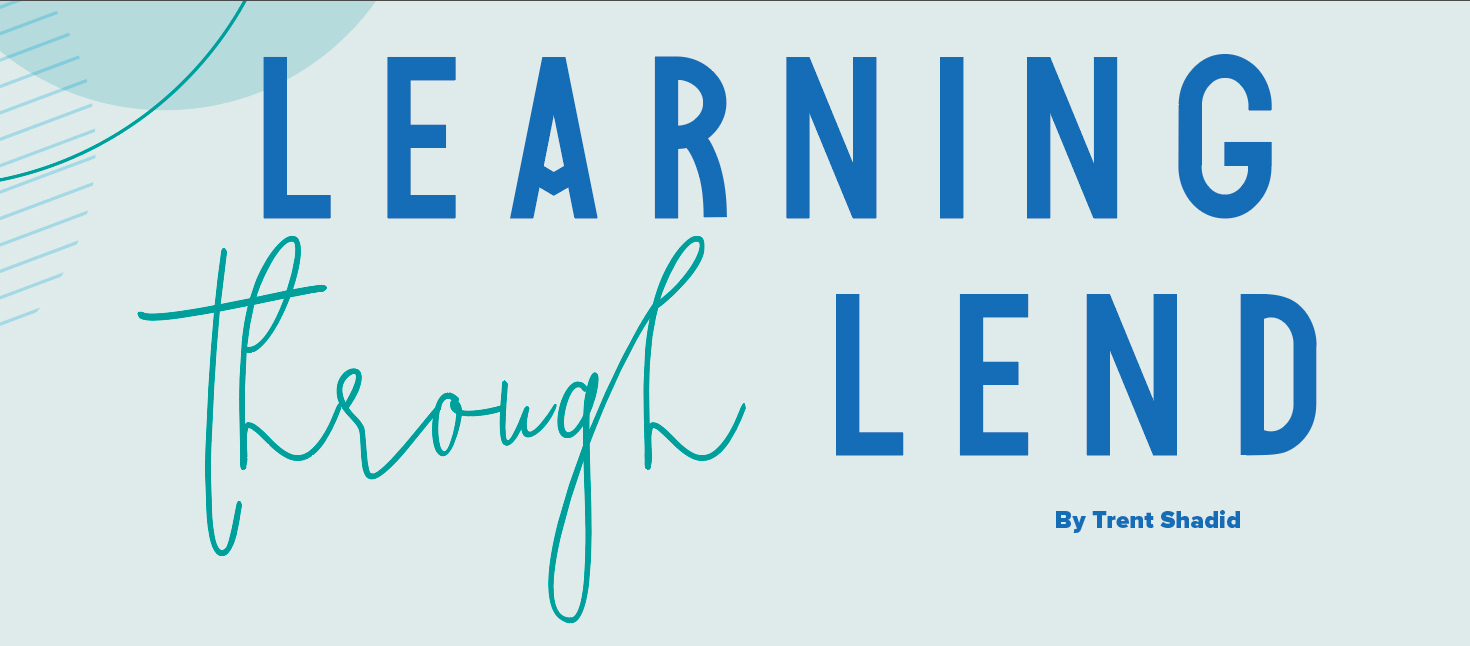Within the University of Memphis School of Communication Sciences and Disorders, graduate students can explore a wide range of avenues to help them grow into well-prepared professionals. The Leadership Education in Neurodevelopment and Related Disabilities (LEND) program is one perfect example.
LEND operates through the UTHSC Center for Developmental Disabilities with interdisciplinary learning at the core of its mission. The program connects professionals and students with a broad national network that includes 52 similar programs across the country to enhance information and resources while maximizing the impact made on the communities they serve.
 UofM Audiology graduate student Ashley Morgan has gained invaluable training through
LEND. She’s been able to expand her expertise as an audiologist, and the interdisciplinary
nature of the program has provided her the chance to gain important understanding
from other health professionals working with the same population.
UofM Audiology graduate student Ashley Morgan has gained invaluable training through
LEND. She’s been able to expand her expertise as an audiologist, and the interdisciplinary
nature of the program has provided her the chance to gain important understanding
from other health professionals working with the same population.
Each month, LEND offers a training day providing lectures across several disciplines to help identify better paths for working together. The evidence-based lectures provide a foundation for understanding what problems exist, why they exist and the positive changes that can be made to help correct them. The holistic approach that can be developed from participating in the program can ultimately lead to improved experiences and results for patients.
“It's been interesting to manage the care of a patient while also working closely with other professionals, including speech language pathologists, psychologists, pediatricians and primary care physicians,” Morgan said. “The beauty of working with an interdisciplinary team is the different perspectives everyone brings. By working with a team that's looking in every direction, we can have better outcomes in patient care and overall quality of life.”
Family mentorship opportunities give LEND trainees a chance to meet with individuals who have a neurodevelopmental disability and their families to discuss experiences on a professional and personal level.
 “It's been an eye-opening experience to get that perspective beyond the appointment
time,” Morgan said. “The family has an opportunity to be honest about their journey
and what they want from the team managing the care of their family member. I've learned
more about the personal impact we have on these families and gained more insight on
considerations when I’m counseling and providing recommendations.”
“It's been an eye-opening experience to get that perspective beyond the appointment
time,” Morgan said. “The family has an opportunity to be honest about their journey
and what they want from the team managing the care of their family member. I've learned
more about the personal impact we have on these families and gained more insight on
considerations when I’m counseling and providing recommendations.”
The UofM School of Communication Sciences and Disorders, which includes Audiology and Speech-Language Pathology graduate students, has worked closely with the LEND program for decades.
“Interprofessional education and practice are critical to the growth of students as it prepares them to work on teams with other professions, whether in a hospital, rehab facility or school,” said Dr. Linda Jarmulowicz, School of Communication Sciences and Disorders dean. “It is a competitive and prestigious training placement, and CSD is proud to contribute to its success.”
 In addition to CSD, students in Psychology and Social Work at the UofM have recently
participated in the LEND program. UofM students working through and in collaboration
with UTHSC is another example of the two institutions working together in a way that
puts students and the community first.
In addition to CSD, students in Psychology and Social Work at the UofM have recently
participated in the LEND program. UofM students working through and in collaboration
with UTHSC is another example of the two institutions working together in a way that
puts students and the community first.
“The University of Tennessee LEND program is honored to have worked with pre-professional students from
many institutions nationally over the years,” said LEND director Dr. Toni Whitaker, who has been involved with the program since 1996.
“Our continued collaboration provides training to University of Memphis students who will ultimately serve children and families in need. Reciprocal sharing of expertise is a benefit to all interdisciplinary students as well as faculty members in the LEND program.”

